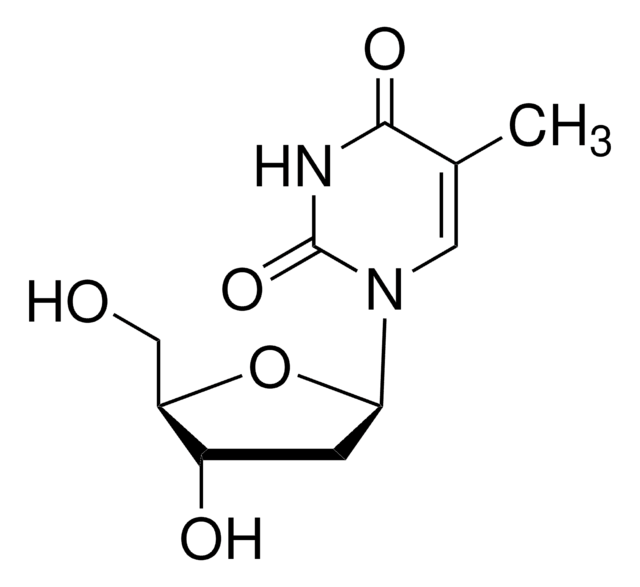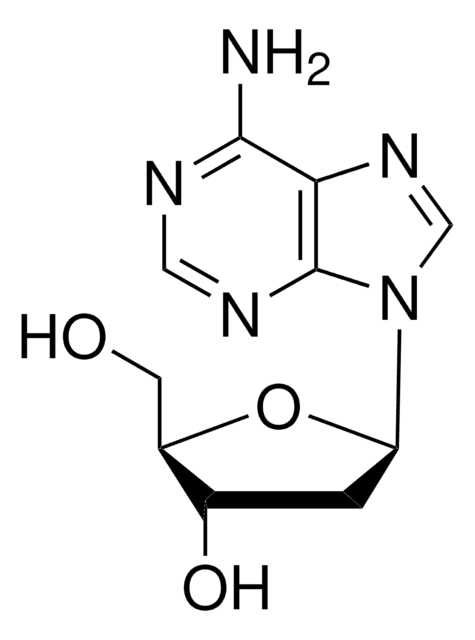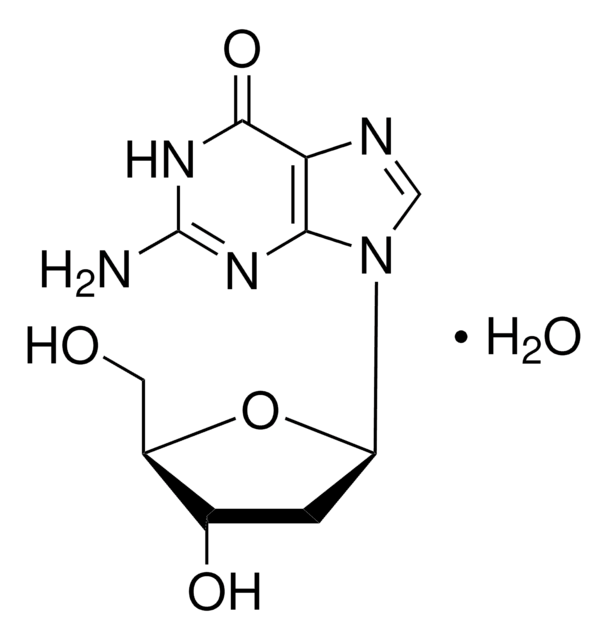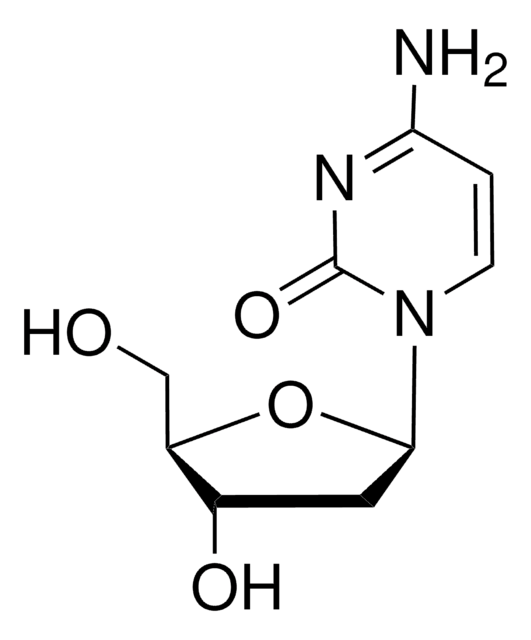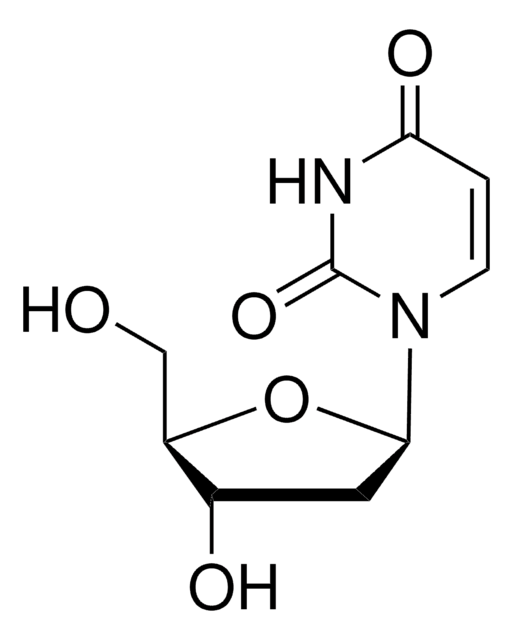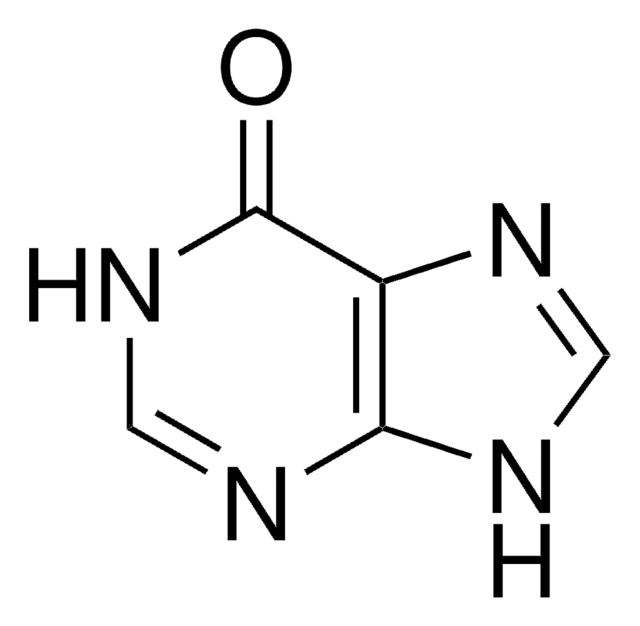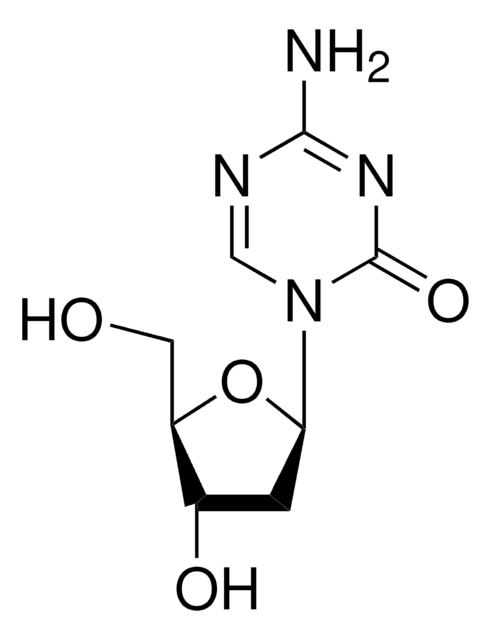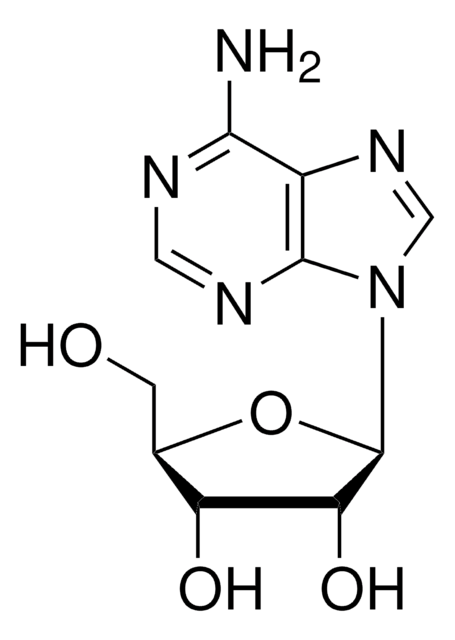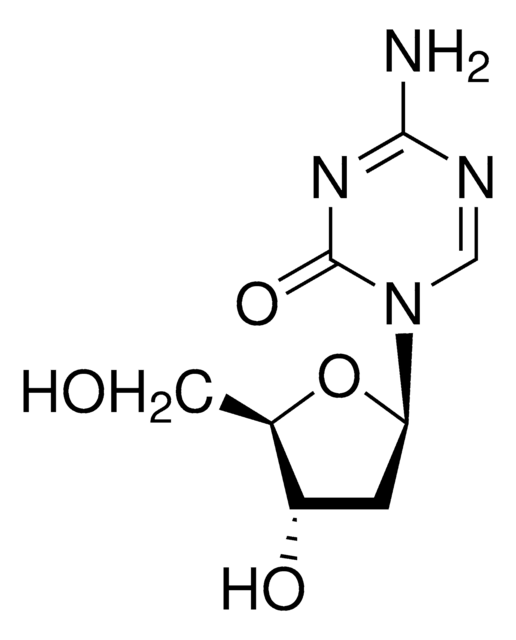D0776
2′-Deoxycytidine hydrochloride
BioReagent, suitable for cell culture
Synonym(s):
1-(2-Deoxy-β-D-ribofuranosyl)cytosine hydrochloride, Cytosine deoxyriboside hydrochloride
About This Item
Recommended Products
biological source
synthetic
Quality Level
product line
BioReagent
Assay
≥99% (HPLC)
form
powder
technique(s)
cell culture | mammalian: suitable
solubility
water: 50 mg/mL, clear, colorless
SMILES string
Cl[H].NC1=NC(=O)N(C=C1)[C@H]2C[C@H](O)[C@@H](CO)O2
InChI
1S/C9H13N3O4.ClH/c10-7-1-2-12(9(15)11-7)8-3-5(14)6(4-13)16-8;/h1-2,5-6,8,13-14H,3-4H2,(H2,10,11,15);1H/t5-,6+,8+;/m0./s1
InChI key
LTKCXZGFJFAPLY-OERIEOFYSA-N
Looking for similar products? Visit Product Comparison Guide
Application
- as a deoxyribonucleoside component in the basal medium to study its effects on Bacillus mojavensis′s anaerobic growth
- in the infectivity assay of monocyte-derived macrophages by human immunodeficiency virus 1 (HIV-1)
- in nucleoside supplementation for the synchronization of human retinal pigment epithelial-1 (RPE-1) cells in G1 phase
Not finding the right product?
Try our Product Selector Tool.
Storage Class Code
11 - Combustible Solids
WGK
WGK 3
Flash Point(F)
Not applicable
Flash Point(C)
Not applicable
Personal Protective Equipment
Choose from one of the most recent versions:
Already Own This Product?
Find documentation for the products that you have recently purchased in the Document Library.
Customers Also Viewed
Our team of scientists has experience in all areas of research including Life Science, Material Science, Chemical Synthesis, Chromatography, Analytical and many others.
Contact Technical Service